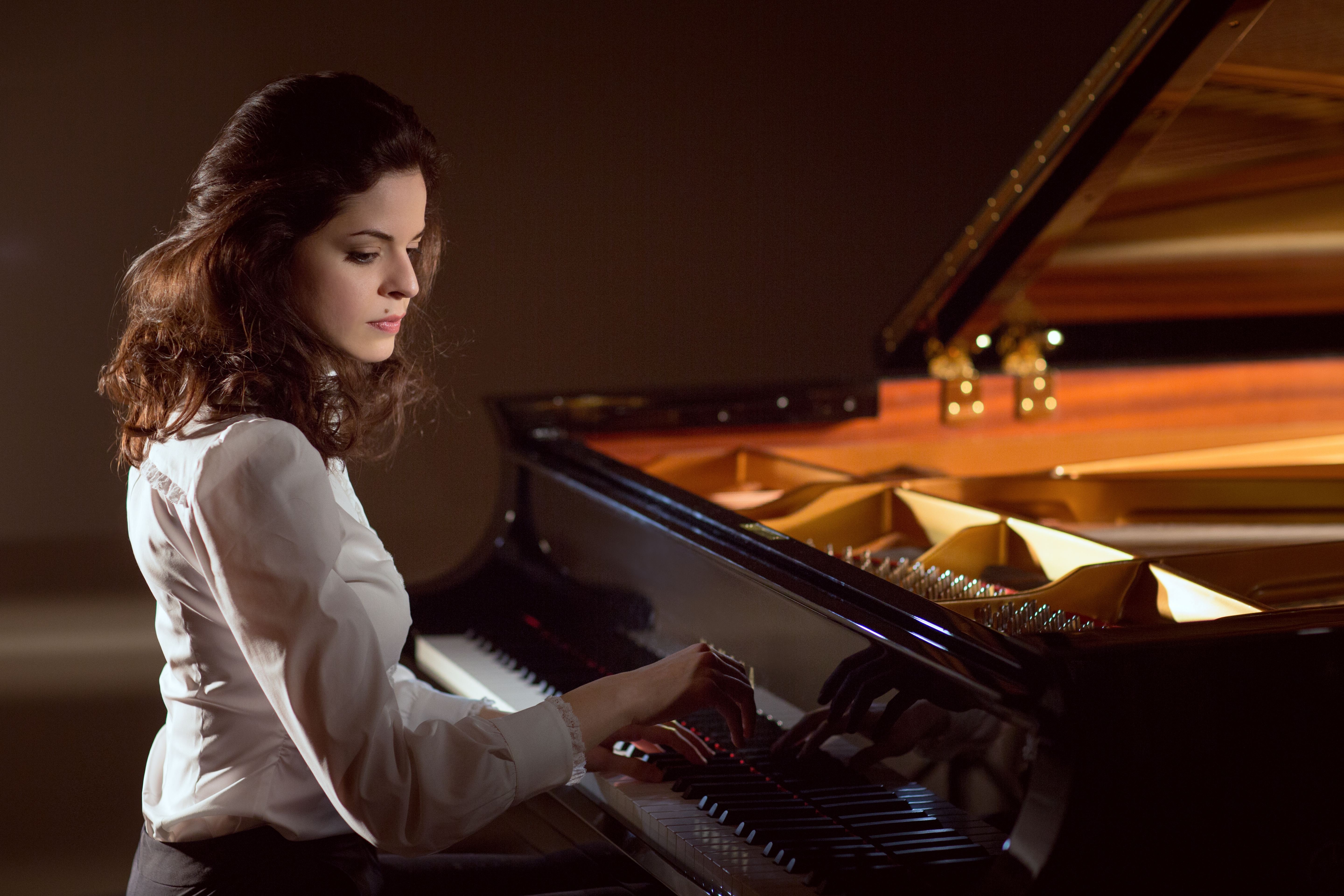It has been roughly 180 years since Frederic Chopin composed his piano etudes. In proficient hands, these brief musical exercises sound as fresh and poignant as the time when Chopin first created them. On the fingertips of a fearless and imaginative master, they become individual masterpieces in their own right.
Such was Zlata Chochieva’s entrancing performance as a part of the Gilmore Keyboard Festival 2017-2018 Rising Stars Series on Sunday afternoon. Relatively new to U.S. audiences, the Moscow-born artist demonstrated formidable command of technique and poetic prowess as her music-making unfolded organically and sublimely during the sold-out concert.
Chochieva is a graduate from the Moscow State Conservatory and the winner of top prizes at 14 international piano competitions. In 2014, she decided to record the Chopin Etudes that she had performed at her graduation exam, with the goal to create poetic sketches and attribute a new meaning to the genre. The recording has earned her much critical praise.
At some point, any dedicated pianist must slave over an etude (by Chopin, Clementi, Czerny or others) to iron out a technical problem and work toward mastery. For example, if a student is struggling to contrast rhythms between two hands, a piano teacher may assign them Chopin’s Etude No. 2 in F Minor. During Chochieva’s performance, she used her hard-earned skills to serve the music within Chopin’s rarely performed “Three New Etudes” and his Opus 25 Etudes.
With a narrative touch and sensitivity to musical phrasing, she extracted the poetry and unearthed the emotional depths of each study. Her creative use of pacing allowed every note to sing, and her relaxed approach to daunting passages transformed every chromatic octave and rapid arpeggio into a delicate wisp of sound.
Sergei Rachmaninoff is a favorite composer of Chochieva’s, and her performance of his “Variations on a Theme of Chopin” — in which the Russian giant rewrote Chopin’s Prelude in C minor 22 different ways — conveyed her reverence. From moodiness to luminousness, from tenderness to sheer power, Chochieva delivered what the music demanded with a turn of her own ingenuity. Many interpretations of the work dwell on the sulky side, but Chochieva’s take was one of pure elegance. Her sixth variation was presented with a hushed, Romantic style, and while her tenth variation did convey storminess, she added contrast with a mischievous touch.
Another common critique of the piece is that it often feels incoherent and rambling, but in Chochieva’s hands it never felt prolonged or dubious. She adroitly made the main theme clear throughout, and focused on the inherent character of each variation until they escalated into a thrilling and sonorous maelstrom of a finale. After an ardent standing ovation, Chochieva played Nikolai Medtner’s “Canzona Serenata,” an obscure piece to which several members of the audience were happily introduced.
As validated by Sunday’s performance, the 32-year-old possesses a musical maturity that surpasses many of her peers. Chochieva’s lack of hesitancy in the face of assumed expectations is refreshing, as is her commitment to unveiling the beauty behind every note.





